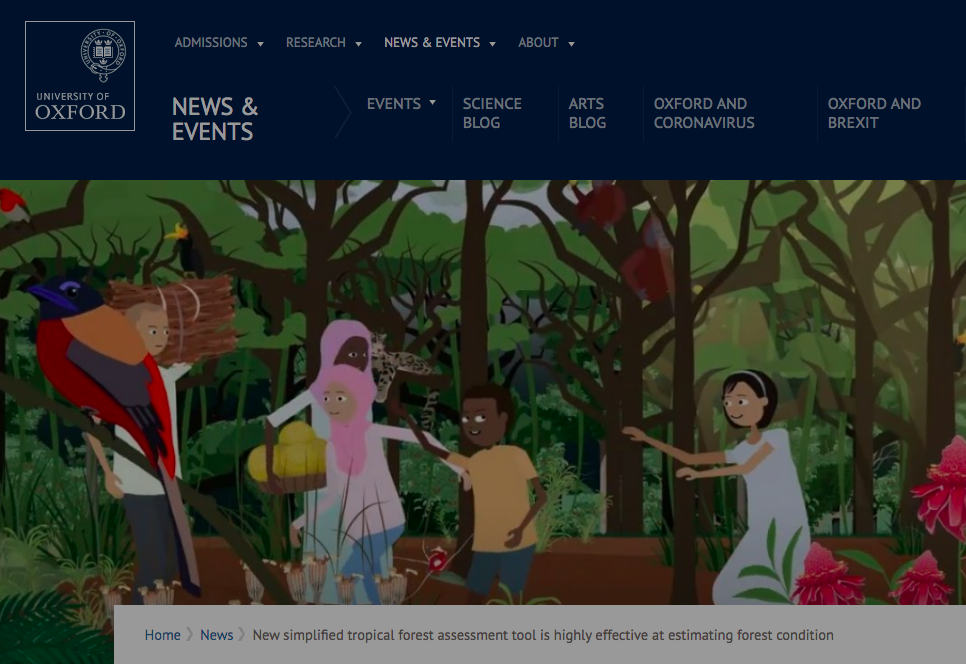
New simplified tropical forest assessment tool is highly effective at estimating forest condition University of Oxford
New collaborative research led by the University of Oxford, and published this week in Ecological Solutions and Evidence, shows that a simple tropical forest assessment tool can robustly estimate forest condition. The Forest Integrity Assessment (FIA) tool has demonstrated high levels of accuracy with traditionally collected scientific data sets to correctly identify biodiversity, forest structure and ecosystem functioning.
The FIA tool, which was originally developed by the High Conservation Value Resource Network (HCVRN), is designed to enable forest managers and other users with no prior experience in forestry or conservation to assess and monitor the condition of tropical forest conservation areas. The FIA tool requires no taxonomic knowledge, time-consuming measurements, expensive equipment or inaccessible satellite technologies, only simple yes or no answers to questions. Often conservation efforts are hampered by limited knowledge, experience and resources, an issue that the FIA tool aims to address. This tool will allow communities, companies, charities and individuals who are responsible for looking after natural forests, to provide accurate and invaluable information about forests outside of protected areas.
SEARRP’s Assistant Director of Knowledge Exchange, Dr Jennifer Lucey from Oxford’s Department of Zoology, led the collaborative research effort with the Universities of Northumbria, York, Leeds and Sheffield, along with partners, the HCVRN, South East Asia Rainforest Research Partnership and Wilmar International. Additionally, Dr Lucey used funding from an Impact Award that she received to create an animated video – ‘How do you estimate the condition of a forest?’ – that effectively explains the importance of forests and forest quality, and details how to recognise signs of a healthy forest and how these differ from forests that have been degraded.
With innovation follow-on funding from UKRI, Dr Lucey is now leading a project in collaboration with industry and NGO partners to develop the FIA tool into a smartphone application. The app will further enhance the accuracy of forest monitoring, with the aim of reducing the variations in responses which was a potential issue highlighted by the study.
Dr Lucey said: ‘We hope that the FIA smartphone app will enable forest stewards from diverse backgrounds to easily and effectively manage their conservation areas, maintaining and enhancing the biodiversity, carbon storage and other important ecosystem services that tropical rainforests provide.’
For the full press release of this article please visit Oxford University’s website.
For further information and interview requests please contact Jennifer Lucey at: Jennifer.lucey@zoo.ox.ac.uk Or Andrew Suggitt at: andrew.suggitt@northumbria.ac.
